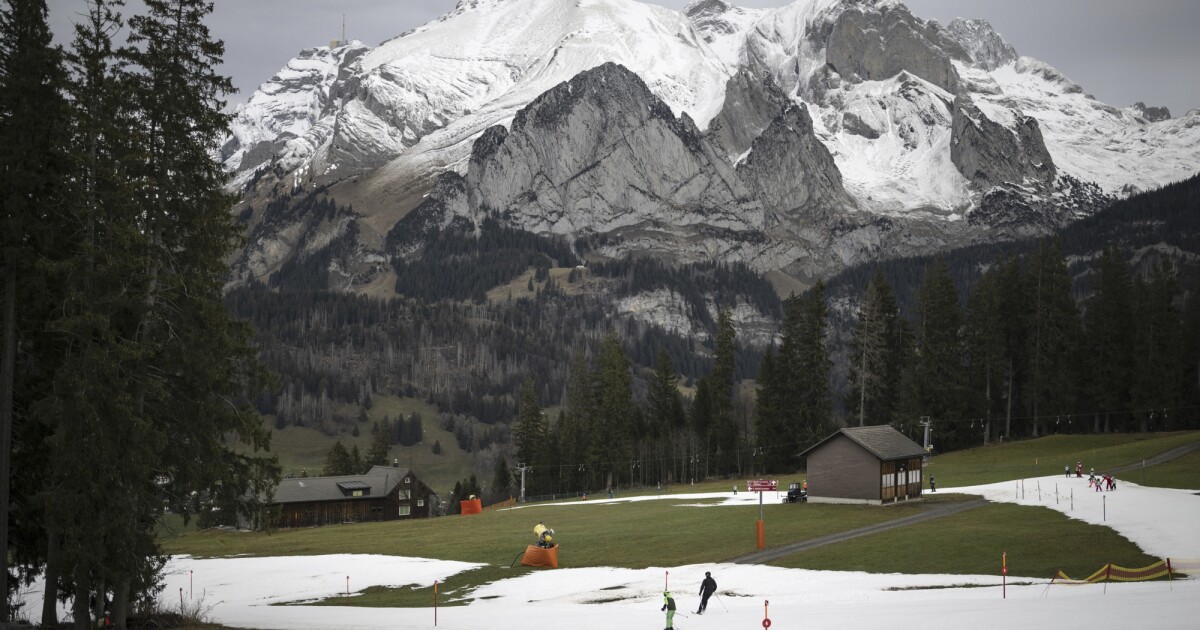

Europe is poised to see its warmest January in years, sparking concern among climate activists but also serving as a welcome reprieve for many countries as they race to conserve gas and fill their storage tanks ahead of next winter.
Already, January has sent record-high temperatures across Europe. At least 15 European countries have seen the warmest weather in a decade, including Germany, Poland, and the Czech Republic — baffling meteorologists, who have reported conditions more akin to spring than the height of winter.
MANCHIN V. TREASURY: THE FIGHT OVER ELECTRIC VEHICLE TAX CREDITS EXPLAINED
The warmth sent gas prices plummeting this week to $79.96 per megawatt-hour on the Dutch TTF, Europe’s natural gas benchmark—the lowest point since before Russia’s invasion.
The low prices have been a welcome reprieve for consumers across Europe, who have endured months of high energy prices following Russia’s invasion of Ukraine and the loss of gas supplies from Russia.
The low prices have even allowed countries, including Germany, to begin refilling gas storage tanks ahead of next winter.
On Thursday, the head of Germany’s Federal Network Agency, Klaus Mueller, noted that the country had used considerably less gas over the past week than in previous years, with consumption down 30% compared to the last four years.
”A gas shortage this winter is becoming increasingly unlikely,” the Federal Network Agency said in its latest report.
Berlin’s gas storage currently stands above 90% — far above the 20% storage level Mueller had urged the country to maintain this winter in order to ensure adequate supplies to begin refilling for the 2023-2024 winter season.
Italy’s energy industry also predicted a decline in energy prices this month if mild weather continues as predicted.
Even so, the warm conditions are highly unusual, meteorologists say — just after a record-shattering warm year for Europe.
The expanse and intensity of the warm spell in Europe make it “probably one of the most intense ever seen,” climatologist Maximiliano Herrera told E&E News.
The German Weather Service noted in a broadcast that it had not seen such warm January weather since 1881 when it first started collecting records.
Ski resorts in Austria haven’t seen snow for a month, and Switzerland put out a pollen advisory this week warning allergy sufferers about early-blooming plants and flowers.
In Spain’s northern county of Basque, residents spent the start of the new year sunbathing and enjoying the 77-degree weather —roughly 27 degrees higher than their January averages.
In Switzerland’s Jura mountain range, temperatures soared to a record-high of 65 degrees on New Year’s Day, with temperatures climbing to an even higher 69 degrees in other parts of the country.
The warm weather has disrupted operations at popular ski resorts across Europe, forcing many to partially close down slopes or even shut down operations altogether until the next snowfall.
The Swiss village of Adelboden, which is slated to host the World Cup skiing tournament this weekend, announced Thursday that it would be using 100% artificial snow this year due to the high temperatures.
CLICK HERE TO READ MORE FROM THE WASHINGTON EXAMINER
Several other annual winter events in the Alps were postponed due to the balmy conditions, including two popular dogsled races and the Andros Trophy, a popular car and motorcycle race hosted on ice.
And in the interim, some resorts have gotten creative — opening their ski slopes and chair lifts to mountain bikers or hikers instead.







